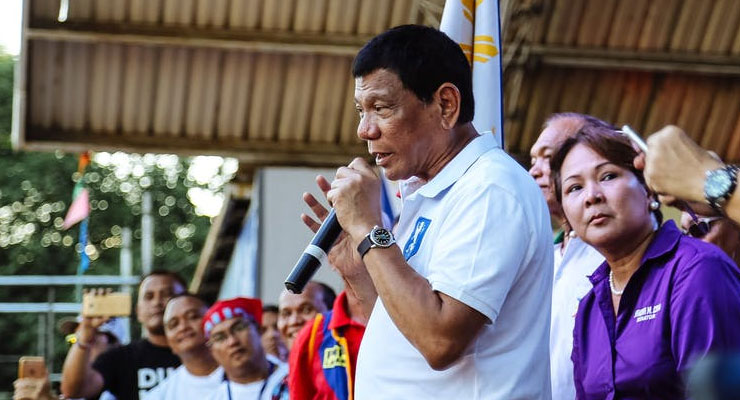
From Voice Of America
Rising inflation, endemic poverty, declining infrastructure and competing claims over territorial waters are among the issues facing Philippine voters when they vote May 13 in midterm legislative elections.
But instead of evaluating candidates on these issues, they are expected to cast ballots based largely on who’s been endorsed by President Rodrigo Duterte – a charismatic leader who remains popular in opinion surveys even though not all Filipinos like his policies.
The elections covering 18,000 seats throughout the archipelago, including local posts, will show the level of public support for the rough-hewn, tough-talking Duterte three years into his term. If his supporters keep their majorities in the two-chamber legislature, he will find it easier to cement such policies as a $169 billion infrastructure building effort, a deadly crackdown on illegal drugs and a fragile friendship with China, with whom it has competing claims in the South China Sea.
“Philippine elections are normally characterized as more personality driven, rather than program or party based, so in that sense the endorsement of the president is also very important,” said Maria Ela Atienza, a University of the Philippines political science professor.
The Commission on Elections will count ballots for six days after the election, in which 63 million citizens are eligible to vote.
Test of Duterte’s popularity
Duterte was elected to a six-year term in 2016 on pledges to eradicate illegal drugs and on his image as a non-establishment politician. He has surprised Filipinos as well as observers overseas by letting police summarily kill drug crime suspects.
He alarms some as well by accepting aid and investment from China while the more militarily powerful neighbor controls Philippine-claimed fisheries around a shoal near Luzon Island in the South China Sea and sends fleets to monitor Manila’s construction on another islet that the two countries contest.
But Duterte’s thunderous remarks have earned him populist appeal, while city dwellers credit him for reducing crime. The president received a 79 percent satisfaction rating in the first quarter of 2019 in a survey by the Metro Manila research institute Social Weather Stations. A pro-Duterte coalition now holds 16 of 24 Senate seats and 248 of 297 seats in the House of Representatives.
An endorsement from Duterte, a 74-year-old former mayor of the Philippines’ second largest city, Davao, matters so much that in some districts more than one candidate has obtained it, said Antonio Contreras, a political scientist at De La Salle University in the Philippines.
Voting also comes down to personal image, Contreras said. The election is not “about issues” but “about personalities,” he said. Candidates with ties to established politicians tend to have more money for advertising and media exposure, said Renato Reyes, secretary general of the Manila-based Bagong Alyansang Makabaya alliance of left-wing social causes.
Some candidates with labor and women’s groups running for office outside the establishment have been hit by “misinformation,” Reyes added.
“It’s really a difficult fight for alternative candidates, for candidates who are more critical of the establishment, they tend to have less funds and less media exposure because they don’t have money to buy advertising,” he said. “That’s one of the hurdles we are trying to overcome so far as progressive candidates are concerned.”
Other political figures risk their lives. Two relatives of a candidate for local office in the province of Negros Occidental were shot to death April 25. They join at least 15 local officials slain from mid-2016 to mid-2018, possibly in connection with the anti-drug effort.
Duterte’s allies show strength
If pro-Duterte candidates win most of the Senate, the president will be able to push ahead with tax law changes favoring the poor and the renewal of a public infrastructure program — from an airport flyover in Manila to the first railway line on the impoverished southern island of Mindanao. Duterte will step down in 2022; Philippine presidents can legally serve just one term.
Duterte is also expected to sustain the anti-drug crackdown, which local media estimate has claimed at least 5,000 lives in extrajudicial killings, in light of what he calls foreign syndicates entering the Philippines. He could expand as well on a friendship with China, which is helping to fund some of the infrastructure.
PulseAsia Research also called the Metro Manila water shortage a “key” issue. Consumer prices, jobs and “peace and order” also figure as issues that voters might consider, Atienza said.
Leave a Reply